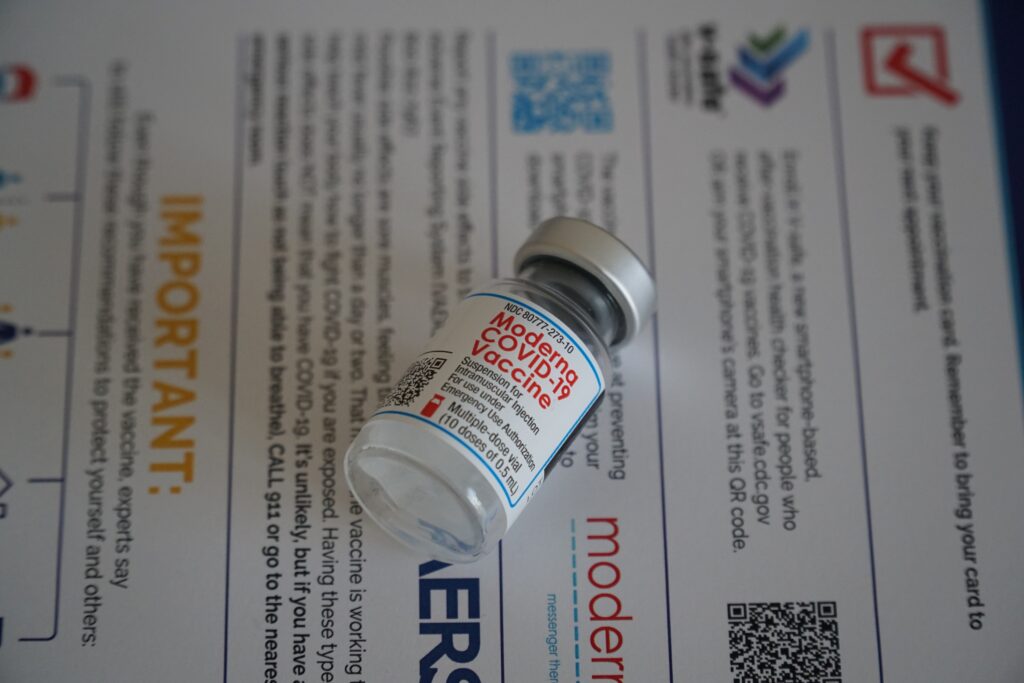At Siron Clinical, we keep up with the latest clinical trial news and aim to share important updates on our social media channels. Here is a roundup of the hot topics being discussed in the news and reported in peer-reviewed journals.
COVID-19 Vaccine

Vaccines against infectious diseases, such as COVID-19, can be assessed in three ways. When a vaccine is being tested in a clinical trial, the focus is on its efficacy – the extent to which they lower a person’s chance of getting the disease. For example, the clinical trials of the Pfizer and Moderna COVID-19 vaccines showed 95% and 94.1% efficacy, respectively. But according to this article in Vox, despite being less reported, the two other ways these vaccines might help stop the pandemic are just as important: reducing transmission and reducing hospitalization.
These are likely to be addressed in the next wave of COVID-19 vaccine development, according to The Guardian. The vaccines being rolled out now aim to prevent serious disease that can result in hospitalization and death. New developments include vaccines that aim to prevent transmission, and combination vaccines targeting different strains of the virus.
New vaccines are likely to be accelerated through the clinical trial process, as have those now being rolled out, and the same goes for promising treatments. For example, in February 2021, the UK Department of Health and Social Care announced that innovative treatments will be “fast-tracked through the UK’s clinical trial system” and awarded multi-million-pound funding to a phase 1 clinical trial platform.
The Impact Of The Pandemic On Clinical Trials
Despite the rollout of COVID-19 vaccines, the industry is still dealing with the fallout of the pandemic, which led to thousands of clinical trials being paused, abandoned or not started at all. According to research published in The Lancet Oncology, there has been a “60% decrease in new clinical trials for cancer drugs and biological therapies during the pandemic.”
Richard Schilsky, chief medical officer for ASCO, commented in the paper: “This pandemic will come to an end and when it does, cancer will still be with us. We had to redirect our focus, it had to be done, but we have to get cancer research back on track as soon as possible.”
Although there was evidence of non-COVID-19-related trials resuming, the rate has since slowed due to the emergence of new strains of the Coronavirus. According to figures gathered by Clinical Trials Arena, 929 disrupted trials had resumed by late January 2021, with the highest rate of resumption in the US (87.5% of trials) followed by the UK (10.8%).
Many of the challenges the pharma industry has faced in starting and continuing clinical trials during the COVID-19 pandemic have been due to transmission mitigation efforts. Social distancing, for example, has had an impact on recruitment and monitoring. Companies running trials have needed to adapt and adopt new approaches, including digital technologies and decentralization.
Diversity In Trial Participation
Whatever model a trial adopts, it is vital to ensure diversity in patient recruitment, and this has been a major talking point in the clinical trials news. A paper in Science discusses the “devastating disparities that exist for Black, Latinx, and Indigenous people in health care and medicine” and suggests that, for scientific as well as moral reasons, the issue of diversity in clinical trials should be elevated.

Diversity is currently still an issue for clinical trials. A cross-sectional study in Jama Network Open showed that “Black or African American, American Indian or Alaska Native, Hispanic or Latino, and older adults were underrepresented and women were overrepresented compared with the US population.”
According to an opinion article in XConomy, “the inherent difficulty in recruiting enough patients who statistically represent the population that makes up the disease.” Part of this is due to the majority of trial sites being underused, and general failure to address barriers to enrolment. Author Liz Beatty writes: “A marketplace ecosystem is the solution for creating greater visibility across a more diverse population of doctors and patients.” One way to ensure better representation and diversity is to enforce data reporting requirements. According to a study, more than 40% of trials examined didn’t report participants’ race, and 65% didn’t report ethnicity. Study author Steven Pergam at the Fred Hutchinson Cancer Research Center commented: “This is a massive gap in information, and if we want to improve enrollment in clinical trials and we want to see diversity in clinical trials, we need the data.”
To stay up-to-date with the latest news and hot topics in clinical trials, follow Siron Clinical on LinkedIn.




0 Comments